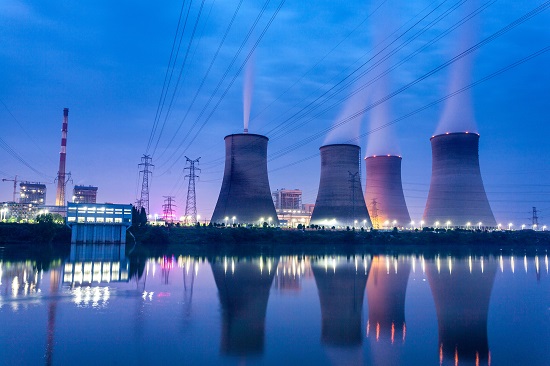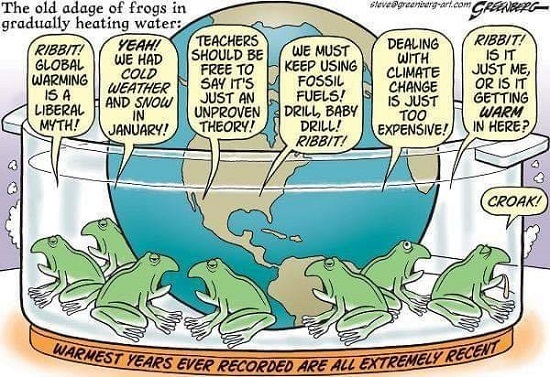2019 SkS Weekly Climate Change & Global Warming Digest #31
Posted on 4 August 2019 by John Hartz
Story of the Week... Toon of the Week... Coming Soon on SkS... Poster of the Week... SkS Week in Review...
Story of the Week...
China’s emissions ‘could peak 10 years earlier than Paris climate pledge’

Shutterstock
CO2 emissions in China may peak up to a decade earlier than the nation has pledged under the Paris Agreement, according to a new study.
With its enormous population and heavy reliance on coal, China is by far the world’s biggest polluter, responsible for more emissions than the US and EU combined.
One of the drivers behind Chinese emissions is the intense urbanisation that has taken place across the country in recent years, as millions of people flock from rural areas to rapidly expanding cities.
However, in new analysis published in Nature Sustainability, a team of researchers has shown that as China’s burgeoning cities become wealthier, their per capita emissions begin to drop.
According to their analysis, this trend could in turn trigger an overall dip in CO2 levels across the nation, and mean that despite the current target for emissions peaking by 2030, they may in fact level out at some point between 2021 and 2025.
It is not the first time a study has suggested a premature dip in China’s emissions, but its timing is significant given an imminent UN summit where world leaders will under pressure to step up their Paris targets.
China’s emissions ‘could peak 10 years earlier than Paris climate pledge’ by Josh Gabbatiss, Rest of World Emissions, Carbon Brief, July 29, 2019
Toon of the Week...

Coming Soon on SkS...
- Climate change made Europe’s 2019 record heatwave up to ‘100 times more likely’ (Daisy Dunne)
- Skeptical Science New Research for Week #31 (Doug Bostrom)
- Why German coal power is falling fast in 2019 (Karsten Capion)
- What psychotherapy can do for the climate and biodiversity crises (Caroline Hickman)
- How climate change is making hurricanes more dangerous (Jeff Berardelli)
- 2019 SkS Weekly Climate Change & Global Warming News Roundup #32 (John Hartz)
- 2019 SkS Weekly Climate Change & Global Warming Digest #32 (John Hartz)
Poster of the Week...

SkS Week in Review...
- 2019 SkS Weekly Climate Change & Global Warming News Roundup #31 by John Hartz
- The 'war on coal' myth by Karin Kirk (Yale Climate Connection)
- What role will climate change play in the 2020 presidential election? by Dana Nuccitelli (Yale Climate Connection)
- Skeptical Science New Research for Week #30, 2019 by Doug Bostrom
- 'No doubt left' about scientific consensus on global warming, say experts by Jonathan Watts (Guardian)
- 2019 SkS Weekly Climate Change & Global Warming Digest #30 by John Hartz































 Arguments
Arguments






























Comments